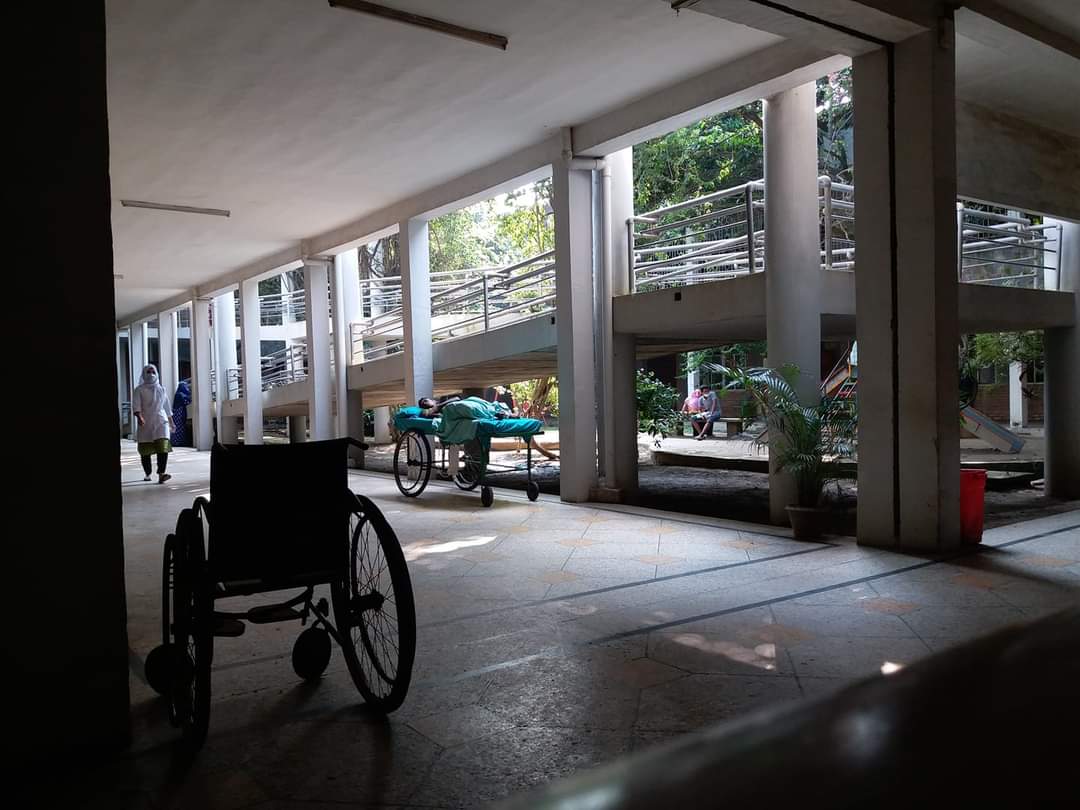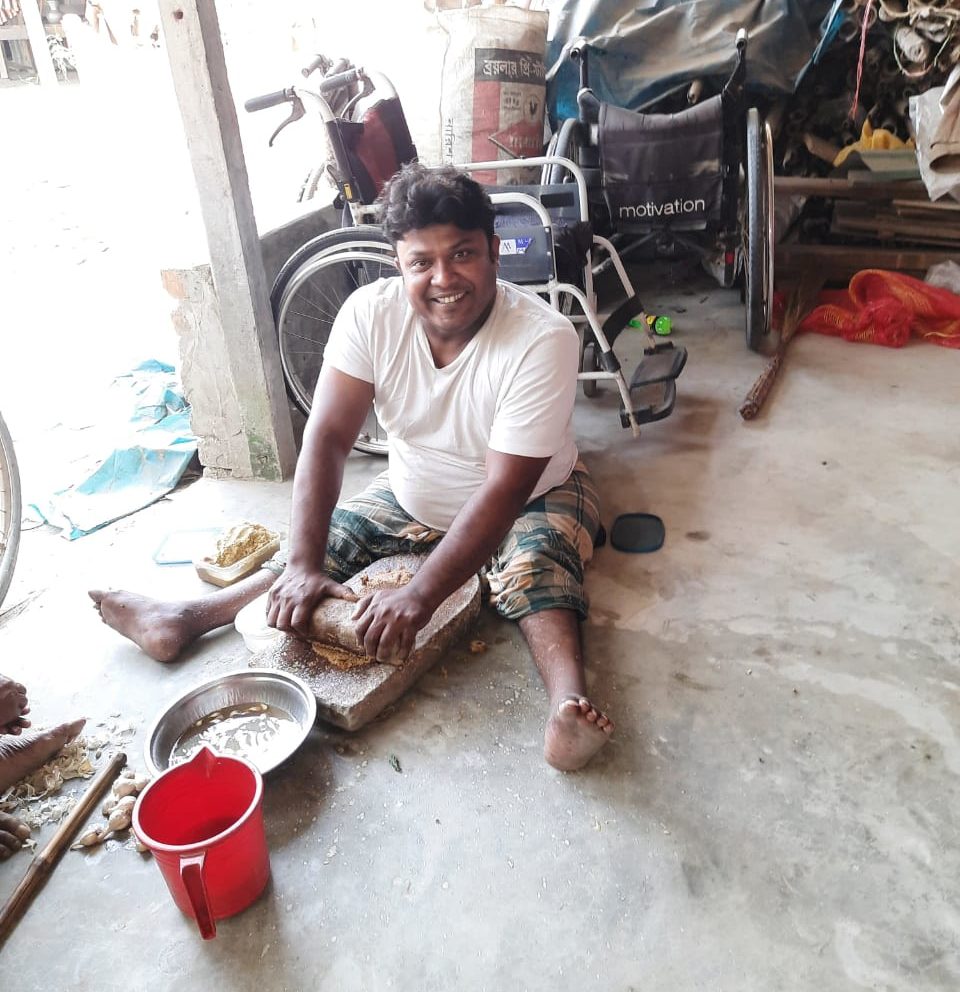Covid-19 has changed the world as we know it. In particular, the pandemic has significantly affected the lives of people with disabilities, with many facing additional barriers in access to services, increased isolation and increased risks of poor health and social outcomes. To strengthen pandemic responses for all, it is crucial to understand the impact of Covid-19 on people with disability from their own perspective.
Disability in a time of Covid-19
In Bangladesh and Liberia, 14% and 16% of the of the population are thought to live with disabilities respectively. However, there is a lack of data on the needs and experiences of this population group, and people with disabilities are often excluded from being actively involved in research.
To help to address this gap, Shahreen Chowdhury from the Liverpool School of Tropical Medicine (LSTM) worked with people with disabilities and caregivers in Bangladesh and Liberia as co-researchers, on ‘Pandemic Portraits’ – a project that aimed to prioritise their views by documenting their own lived experiences of Covid-19.
Using photovoice as a creative participatory methodology, co-researchers took photographs to capture their lived experiences through their lens. The collections of photos cover themes relating to inaccessibility, social connection, barriers to healthcare as well as nature, community, and spaces of healing.

– Rose Dargbe, younger female, Liberia

– Halima Akter, 24 years old, female, Dhaka, Bangladesh

– Ashraful Alam, 32 year old male, Dhaka, Bangladesh
Photovoice, through imagery and storytelling, is a powerful tool in prioritising the voices of disabled people, adding to an evidence base to inform inclusive pandemic responses.
The Pandemic Portraits exhibition
The Pandemic Portraits project is linked to the ARISE (Accountability and Responsiveness in Informal Urban Settlements for Equity) project, of which IDS is a partner. On 23 January 2023, IDS hosted a launch event for a ‘Pandemic Portraits’ a photovoice exhibition, which will be hosted by IDS from January – March 2023.
The launch event brought together a range of stakeholders, including researchers and students from across IDS and LSTM, providing opportunities to make connections and find synergies across the diversity of research that participants undertake on the issues of inclusion and disability.
There were short presentations about the work of ARISE (Hayley MacGregor and Laura Dean), the Pandemic Portraits project (Shahreen Chowdhury & co-researchers Boakai A. Nyehn Jr and Heylove R. Mark Sr from the National Union of Organizations for the Disabled Liberia and Salma Akter Urme from BRAC James P Grant School of Public Health) and some of the research on disability undertaken at IDS (Stephen Thompson).
This project was funded by RSTMH and completed in collaboration with REDRESS, Liverpool School of Tropical Medicine, the National Union of Organizations for the Disabled Liberia, and BRAC James P Grant School of Public Health.